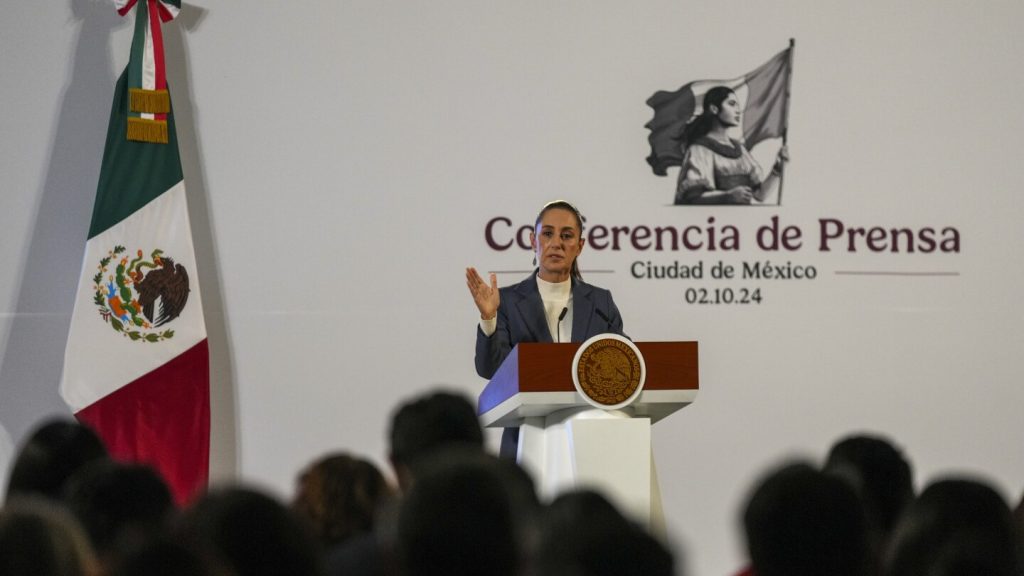The president of Mexico announced on Monday that prosecutors are investigating officials in a town where a sign was displayed thanking a drug lord for gifts distributed during the holiday season. This practice of drug cartels giving out gifts or food around the holidays is not uncommon in Mexico, as they often use it as a strategy to improve their image and gain support from local communities. However, these cartels also engage in extortion and seek information from locals to avoid army raids. The videos posted on social media from the town of Coalcoman in Michoacan showed a sign at a Christmas fair expressing gratitude to Jalisco cartel leader Nemesio Oseguera, known as “El Mencho,” for the gifts received by children. The involvement of local officials in this message is unclear, raising questions about their knowledge and approval of the sign.
President Claudia Sheinbaum condemned the signs in Coalcoman and stated that officials in the town are under investigation for possible connections to criminal groups. She emphasized that a criminal organization should not have the platform to publicly promote violence through such events. Federal prosecutors are looking into the actions of the town’s mayor and others involved in putting up the sign, particularly in areas of Michoacan where the Jalisco cartel holds significant control. It is not uncommon to see signs of the cartel’s dominance in these regions, with checkpoints on roads and aggressive tactics against rivals, alongside activities like donating trampolines for local children and coercing residents to join anti-government demonstrations.
The Mexican government’s approach of not directly confronting the cartels has left local officials in a challenging position where they must navigate interactions with these criminal groups. In some cases, municipal budgets have even been shared with the cartels, further blurring the lines between law enforcement and criminal activities. The Jalisco cartel’s influence in Michoacan has been demonstrated through various means, including checkpoints, attacks on rivals, and visible signs of control within the community. The government’s investigation aims to uncover any ties between local officials and criminal groups, shedding light on the complex dynamics of power and influence in regions affected by cartel activity.
The situation in Coalcoman highlights the ongoing challenges faced by local communities in Mexico due to the presence of powerful drug cartels. While these organizations may engage in philanthropic gestures to garner support, the underlying reality of extortion and violence remains a constant threat to residents. The investigation into the thanksgiving sign serves as a reminder of the pervasive influence of criminal groups in certain parts of the country and the difficulties in upholding law and order. As the government continues its efforts to address organized crime, the need for greater accountability and transparency among officials becomes increasingly apparent to prevent the exploitation of local communities by criminal organizations.


